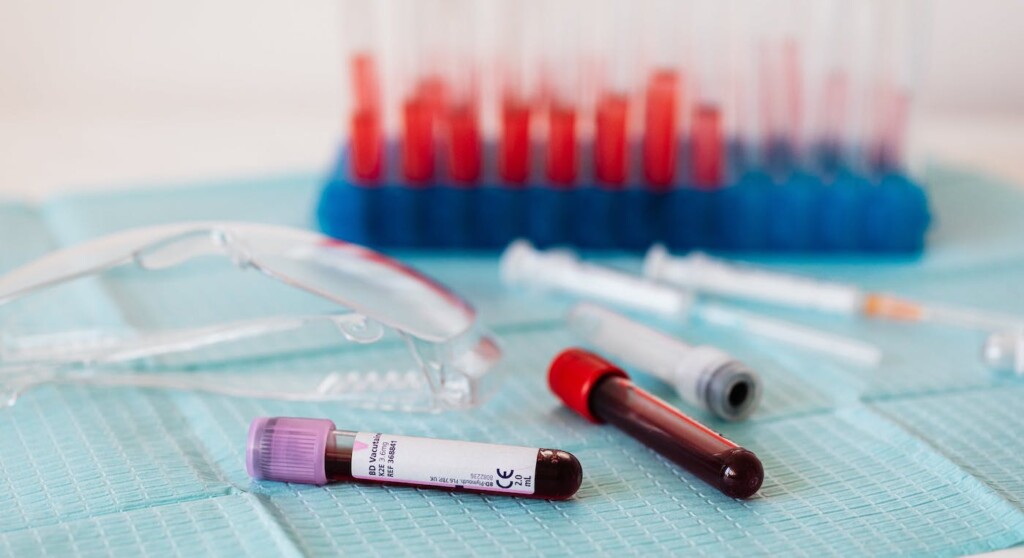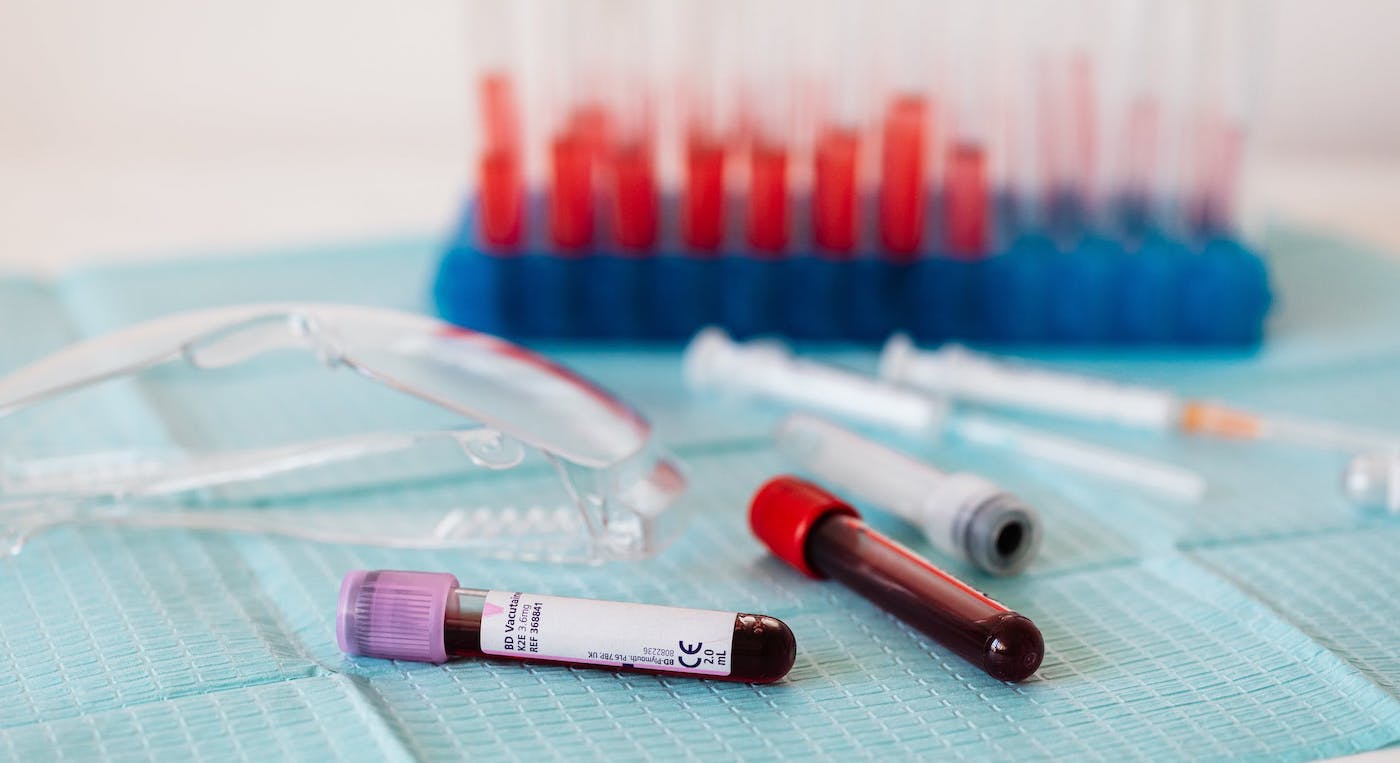
Routine blood tests could be used to more accurately diagnose cancer, even earlier, for people with stomach pain or bloating, according to a new study.
Most people who report such symptoms to their doctors are referred for blood tests, say scientists, but it was not known how well those tests, used to explore a range of possible causes of illness, can predict cancer risk.
But researchers found that, in 19 commonly used blood tests, abnormal results were linked to a higher risk of being diagnosed with cancer within a year.
The new study looked at data from more than 400,000 people in the UK aged 30 or older who had visited a GP due to stomach pain and more than 50,000 who had visited their GP due to bloating. Two-thirds of the group had blood tests following their appointment.
The research team, led by University College London (UCL) scientists, estimated that, if the abnormal results were taken into account, there would have been a 16% increase in the number of people with undiagnosed cancer who were given an urgent referral, compared to assessment based on symptoms, age and sex alone.
They say it translates to an extra six people with undiagnosed cancer being urgently referred out of 1,000 people who had visited the GP with stomach pain or bloating, on top of 40 people with cancer being urgently referred already, without using blood test results.
If any patient had one or more blood tests that increased their risk to above 3%—and they would not have been referred based on their age, sex and symptom alone— they were included as an extra urgent referral.
“Our study suggests we can improve cancer detection with blood tests that are already available and that are routinely given to patients with symptoms whose cause is unclear,” said Dr. Meena Rafiq, the study’s lead author. “This could be an efficient, affordable way to improve early cancer diagnosis and in some cases increase the likelihood of successful treatment.
“Given that in practice it may be challenging for GPs to interpret a range of blood test data, our study points to the need for an automated tool that could assess cancer risk based on multiple variables.”
The study published in the journal PLOS Medicine used anonymized patient data from the Clinical Practice Research Datalink (CPRD), collected from a network of general practitioner (GP) offices across the UK between 2007 and 2016.
The team found that just over one in 50 people (2.2%) who went to their GP reporting stomach pain were diagnosed with cancer over the next 12 months. Exactly the same proportion of people (2.2%) reporting bloating were also diagnosed with cancer within a year.
In the UK, guidelines from the National Institute for Health and Care Excellence (NICE) state that people should be given an urgent cancer referral, to a specialist or for tests, if their risk of cancer is higher than 3%.
The research team also found that people aged 60 or over who had gone to the GP with either stomach pain or bloating had a high enough risk to warrant an urgent cancer referral, regardless of blood test results.
GREAT NEWS: Lung Cancer Drug Elicits Unprecedented Results in New Trial
Currently, over-60s with stomach pain or bloating are only given a cancer referral in the UK if they have an additional potential cancer signal such as weight loss.
Risk of cancer was estimated to be 3.1% for men in their 60s reporting stomach pain, rising to 8.6% for men in their 80s with the symptom. The risk for women in those age groups was 3.1%, rising to 6.1%.
The research team pointed out that the incidence of cancer was likely to be higher in the study sample than among a broader group of people experiencing stomach pain or bloating who would not necessarily go to their GP or have blood tests.
They found that among people aged 30 to 59 with abdominal pain or bloating, anaemia, low albumin, raised platelets, abnormal ferritin, and increased inflammatory markers strongly predicted a risk of undiagnosed cancer.
SIMPLE SOLUTION? Vitamin D Improves Immunity to Cancer And Reduces Tumor Growth in Mice, Study Finds
For example, in women aged 50 to 59 with abdominal bloating, pre-blood test cancer risk of 1.6% increased to 10% with raised ferritin, to 9% with low albumin, to 8% with raised platelets, to 6% with raised inflammatory markers and to 4% with anaemia.
Currently, only raised platelets and anaemia are included in guidelines for cancer referral.
The researchers noted that the UK guidelines focused on the presence of “alarm” symptoms and risk of cancer of a single organ, with limited guidance existing for vague symptoms that could be a sign of cancer in a number of different organs.
“Half of all people with as-yet-undetected cancer will first go to the doctor with vague symptoms that can be challenging to diagnose,” said Dr. Rafiq. “Many of these patients are investigated in primary care with commonly used blood tests that could help to identify which patients are most likely to have underlying cancer and should be prioritized for referral.”
The study also showed which types of cancer were most common for people with the symptoms. Overall, bowel cancer was most common, followed by prostate and pancreatic cancer in men, while bowel cancer was followed by breast and ovarian cancer in women.
SMASHING SUCCESS: CAR-T Cell Therapy Achieves Near-Complete Tumor Regression in Brain Cancer After Five Days
“This research shows these common tests can substantially enhance assessment of cancer risk,” he added.
SEND THE VALUABLE INSIGHTS To Your Friends And Family on Social Media…




















